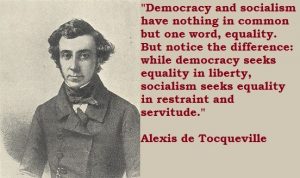For thousands of years, rulers, kingdoms, and States – governments large and small – have understood very well how human social-bonding works (affiliation to the maximum number of common cultural denominators). So they have strived to ensure their people share a common deep culture, and have struggled against all threats to the unity this produces. They have understood that you can enjoy lots of ethnic diversity within an existing deep cultural unity, but you cannot derive cultural unity from diversity. That’s why for most nations in history, assimilation has been the key to unity: get newcomers to forget their old ways, and adopt the new host culture.
Arguably, the Roman Empire was the first, most successful, and most ethnically-diverse State in history. But it lasted so long mainly because it insisted on conformity to common linguistic, legal, political, and religious standards and symbols. You used Latin in all official discourse and documents (some Greek for high culture), if a citizen, you obeyed and were protected equally by Roman law, you shared common political rights in all Roman provinces, you worshiped whatever gods you wanted, but if you attacked the Gods of Rome you would be crucified. Above all, the rule was, “When in Rome, do as the Romans do.”
I am arguing that the most central logical and historical reality without which there can never be a “people” is the sense of inclusiveness that arises from bonding to the same deep culture, and this inclusiveness is necessarily and by definition also exclusive: you are either for us, or against us (and our culture), an insider or an outsider. That is what creates the bonds and privileges of membership in any social group. This is simply a fact of human history, the way the world has always worked, and this natural process of inclusion/exclusion is the only thing that produces social bonding in any group. Whether in sport teams, families, churches, or nations, all human social bonding – which is a universal cultural phenomenon – demands sacrifice to group ideals, subordination to group authority, commitment to group purposes, and then, and only then, members get group privileges.
For a very long time Canada offered its deep culture to all immigrants, and expected the social-bonding explained above to take place. In effect, the private property rights, rule of law, individual freedom, our many legal and political rights, and much more, comprised a real-world, practical, universalizing culture that worked very well to assimilate and unify foreigners. The trouble with almost all the modern democracies is that in embracing multiculturalism as an official policy – the absurd idea that differences unite – they have been turning their backs on what really unites: their own deep-culture inheritance (however filtered or enriched by other skin-deep cultural experiences of other peoples).
In addition to these distortions of value and truth, these trivializations of deep culture, perhaps the most insidious effect of “diversity” is that it is no diversity at all. It has produced a strict and unrelenting, extremely narrow-minded and very radical anti-Western orthodoxy of a kind rarely seen before. The diversity in question is in fact a diversity of the like-minded, and the like-minded are primarily radical secular leftists of a bitterly anti-Western type operating in lock-step attitudinal conformity who employ all the techniques of modern Statism to shut down opposing views via what author Camille Paglia, herself a leftist, has called a “fascism of the left.” Another astute critic from the left who saw this scam long ago, was Christopher Lasch, who said that “in practice, diversity turns out to legitimize a new dogmatism in which rival minorities take shelter behind a set of beliefs impervious to rational discussion.”[1]
So much is this true that one of the newly-rarefied meanings of “racism” includes a charge of failure to recognize racial differences, special racial identities, and the unique “perspectives’ of racial minorities (in the unique sensibilities of which you may be genetically-barred from sharing, due to your different race). Toronto already has one all-black school (a school especially for whites would be considered racially discriminatory). And authorities are now discussing the need for “all-aboriginal” schools. There is nothing “diverse” about all this. It is our new orthodoxy.
[1] Cited in Robert Martin, The Most Dangerous Branch: How the Supreme Court of Canada Has Undermined Our Law and Our Democracy (Montreal-Kingston: McGill-Queen’s University Press, 2003), p.20.
